Diesel Fuel
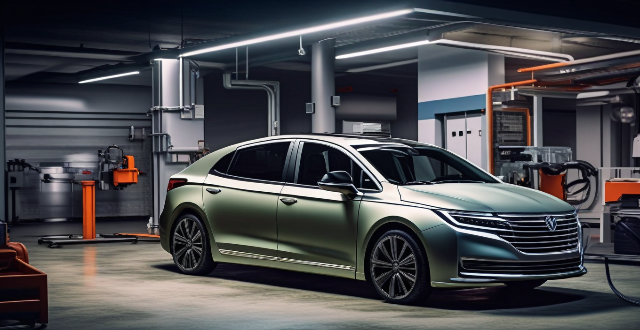
Are diesel hybrid cars more fuel-efficient than regular diesel cars ?
Diesel hybrid cars are more fuel-efficient than regular diesel cars due to the combination of a diesel engine and an electric motor, which optimizes fuel consumption and reduces emissions. They offer improved fuel efficiency, lower emissions, and better performance compared to traditional diesel vehicles.

How much does a diesel hybrid car cost compared to a regular diesel car ?
The article compares the costs of diesel hybrid cars and regular diesel cars, considering factors such as initial purchase price, fuel efficiency, and long-term savings. Diesel hybrid cars are more expensive initially due to their advanced technology but offer improved fuel efficiency and reduced emissions, leading to potential long-term savings and environmental benefits. Regular diesel cars are less expensive upfront but are generally less fuel-efficient and produce more emissions. The choice between the two depends on individual priorities and budget.
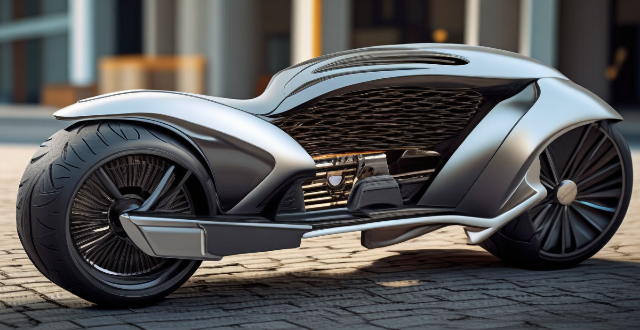
Are diesel hybrid vehicles better for the environment than regular diesel vehicles ?
Diesel hybrid vehicles, which combine a diesel engine with an electric motor, have the potential to be more environmentally friendly than regular diesel vehicles. They can offer improved fuel economy and reduced emissions of CO2 and particulate matter. However, the production of batteries for hybrid vehicles can result in higher upstream CO2 emissions, and advanced emission control systems are needed to significantly reduce NOx emissions. A comprehensive lifecycle analysis that takes into account all factors would provide a clearer picture of the environmental benefits of diesel hybrid vehicles compared to regular diesel vehicles.
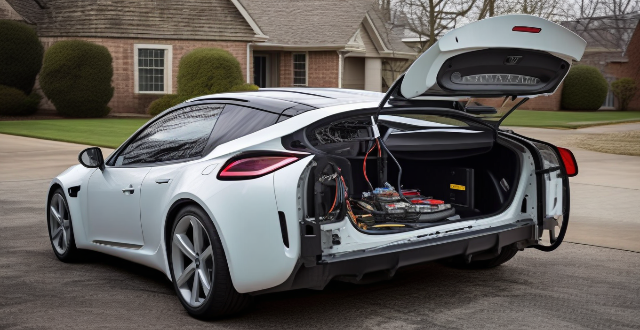
Can you convert a regular diesel car into a diesel hybrid car ?
Converting a regular diesel car into a diesel hybrid is possible but involves technical challenges, high costs, and potential legal and warranty issues. It requires installing a battery pack, integrating electric motors, and modifying the drivetrain and control systems. Professional assistance is recommended due to the complexity of the project. The financial investment may not be justified compared to buying a new hybrid vehicle. Legally, modifications could void the warranty and affect insurance coverage, and compliance with emissions and safety standards must be ensured.

What are some popular diesel hybrid car models ?
Diesel hybrid cars are becoming increasingly popular due to their fuel efficiency and lower emissions. Here are some of the most popular diesel hybrid car models: The Audi A3 TDI e-tron is a compact luxury car that combines a 2.0-liter TDI diesel engine with an electric motor. It offers up to 150 horsepower and can travel up to 31 miles on electric power alone. The Volkswagen Jetta TDI Hybrid is a midsize sedan that features a 1.6-liter TDI diesel engine paired with an electric motor. It provides excellent fuel economy and low emissions, making it an ideal choice for environmentally conscious drivers. The Peugeot 308 HDi Hybrid is a compact hatchback that combines a 1.6-liter HDi diesel engine with an electric motor. It offers impressive fuel economy and reduced CO2 emissions, while still providing plenty of power and performance. The Skoda Octavia iV is a spacious family car that features a 2.0-liter TDI diesel engine combined with an electric motor. It offers up to 240 horsepower and can travel up to 37 miles on electric power alone, making it a great option for long trips. The Volkswagen Passat TDI Hybrid is a midsize sedan that combines a 2.0-liter TDI diesel engine with an electric motor. It provides excellent fuel economy and low emissions, while also offering plenty of space and comfort for passengers.
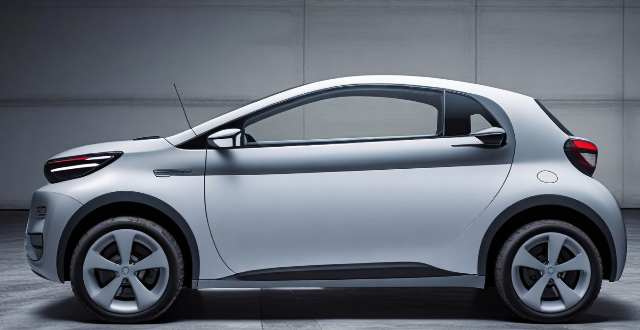
How has the design of fuel vehicles evolved over the years ?
The evolution of fuel vehicle design has been marked by significant changes and innovations over the years. From horse-drawn carriages to modern electric cars, each new development has brought its own set of benefits and challenges. Key milestones in this evolution include the introduction of steam-powered vehicles during the Industrial Revolution, the invention of gasoline-powered vehicles in 1885, the rise of diesel engines in the early 20th century, and the recent resurgence of electric cars. Looking ahead, we can expect further advancements in autonomous driving technology, hydrogen fuel cells, and biofuels made from renewable sources.
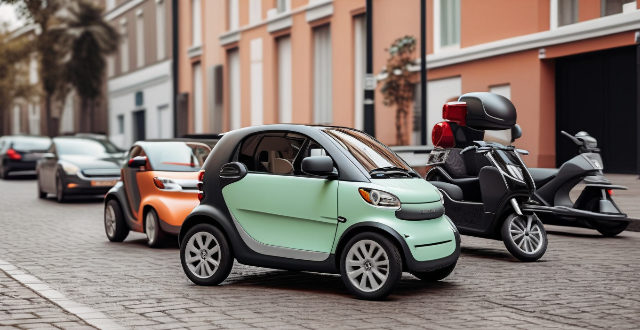
How does the performance of fuel vehicles differ from that of electric cars ?
The performance differences between fuel vehicles and electric cars are significant in terms of acceleration, refueling/charging, emissions, maintenance, and noise/vibration. Electric cars offer faster acceleration, lower maintenance needs, and cleaner operation but may require longer charging times and have limited charging infrastructure compared to the widespread availability of gas stations for fuel vehicles. The choice between the two often depends on personal preferences, lifestyle needs, and environmental considerations.

How long do diesel hybrid engines last ?
This article discusses the factors that affect the lifespan of diesel hybrid engines and provides an estimate of their expected lifespan. It also offers tips for maximizing the lifespan of these engines through proper maintenance, responsible driving habits, high-quality fuel, and protection against extreme temperatures.
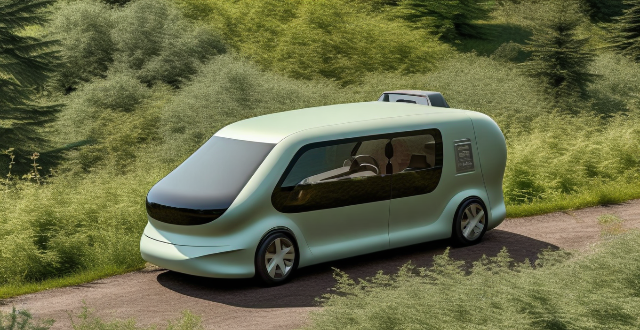
What are the pros and cons of owning a diesel hybrid vehicle ?
Diesel hybrid vehicles offer several advantages, including improved fuel economy and lower emissions. They also provide better performance and a quieter ride. However, they come with higher costs and complex technology that may require specialized maintenance. Additionally, limited charging infrastructure and potential weight issues can affect their efficiency and handling. The resale value of diesel hybrids might not be as high due to the specialized nature of the technology. Despite these drawbacks, diesel hybrids offer a reduced dependence on fossil fuels and can be a more environmentally friendly option for transportation.

Is it worth investing in a diesel hybrid vehicle for long-distance travel ?
Diesel hybrid vehicles offer high fuel efficiency and performance, making them suitable for long-distance travel. However, they come with higher costs and potential emission concerns. Alternatives like gasoline hybrids and electric vehicles might be worth considering depending on individual needs and circumstances.

What is the average fuel consumption of a typical fuel vehicle ?
The average fuel consumption of a typical fuel vehicle can vary depending on several factors such as the type of vehicle, driving conditions, and maintenance. However, we can provide a general overview of the fuel consumption rates for different types of vehicles: - Small cars typically have better fuel efficiency than larger vehicles, with an average fuel consumption of around 6-8 liters per 100 kilometers (L/100km). - Midsize cars usually have slightly higher fuel consumption rates compared to small cars, with an average fuel consumption of around 8-10 L/100km. - Large cars generally have higher fuel consumption rates due to their larger size and weight, with an average fuel consumption of around 10-12 L/100km. - Small SUVs are becoming increasingly popular and offer relatively good fuel efficiency, with an average fuel consumption of around 9-11 L/100km. - Midsize SUVs are larger and heavier than small SUVs, resulting in higher fuel consumption rates, with an average fuel consumption of around 11-13 L/100km. - Large SUVs are the largest and heaviest vehicles in this category, leading to higher fuel consumption rates, with an average fuel consumption of around 13-15 L/100km. - Light duty pickups are designed for carrying light loads and offer reasonable fuel efficiency, with an average fuel consumption of around 12-14 L/100km. - Medium duty pickups are larger and more powerful than light duty pickups, resulting in higher fuel consumption rates, with an average fuel consumption of around 14-16 L/100km. - Heavy duty pickups are designed for heavy-duty tasks and have the highest fuel consumption rates among pickup trucks, with an average fuel consumption of around 16-18 L/100km. It's important to note that these figures are just estimates and actual fuel consumption can vary based on individual driving habits, vehicle condition, and other factors. Additionally, newer vehicles with advanced technology may have lower fuel consumption rates than older models.

What is the fuel efficiency of a hybrid car ?
Hybrid cars are more fuel-efficient than traditional gasoline-powered vehicles, with an average range of 40-50 mpg in city driving and 35-45 mpg on the highway. This increased efficiency offers benefits such as reduced fuel costs, lower emissions, longer engine life, and potential tax incentives. If you're looking for a more environmentally friendly and cost-effective way to get around, consider purchasing a hybrid car.

What is the future of fuel vehicles in the face of increasing environmental concerns ?
The future of fuel vehicles is uncertain due to increasing environmental concerns. Fuel vehicles, particularly those that run on fossil fuels, are a significant source of air pollution and contribute to global warming, acid rain, and respiratory illnesses. The extraction and refining of fossil fuels can also cause significant environmental damage. Governments around the world are implementing stricter regulations on emissions from fuel vehicles, making it increasingly difficult for them to comply. Consumer preferences are also changing, with more people opting for eco-friendly alternatives such as electric cars and hybrids. Advances in technology are also posing a threat to fuel vehicles, with electric cars becoming increasingly affordable and efficient. There are several potential future scenarios for fuel vehicles, including continued use but with stricter regulations, a phase out in favor of eco-friendly alternatives, or a hybrid approach where both fuel vehicles and eco-friendly alternatives coexist. It is important for governments, consumers, and automakers to work together to find innovative solutions that balance the need for transportation with the imperative to protect our planet.

How do fuel vehicles affect the economy, particularly in terms of employment in the oil industry ?
The text discusses the impact of fuel vehicles on employment in the oil industry. It highlights that the industry offers a range of jobs from exploration and extraction to refining, distribution, and sales. However, it also notes challenges such as market volatility, environmental concerns, and technological advances that could affect job stability in the sector. The text concludes by emphasizing the need for strategies that promote economic stability while encouraging sustainable practices and innovation.
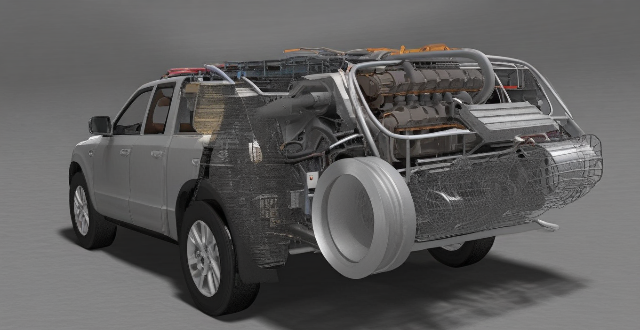
What are the main components of a fuel vehicle's engine ?
The main components of a fuel vehicle's engine include the cylinder block, pistons, connecting rods, crankshaft, camshaft, valves, head gasket, cylinder head, timing belt or chain, oil pump, spark plugs, intake and exhaust manifolds, cooling system, and lubrication system. These components work together to ensure efficient combustion, energy conversion, and overall engine operation.

What role can hydrogen fuel cells play in transitioning to a renewable energy future ?
Hydrogen fuel cells are a promising technology for renewable energy transition, offering advantages such as zero emissions, high energy density, and renewable sources. They have applications in transportation, stationary power generation, and industrial applications. However, challenges such as cost, infrastructure, and safety concerns need to be addressed for widespread adoption.

What role do fossil fuel companies play in climate change denial ?
Fossil fuel companies contribute to climate change denial through financial interests, lobbying, and disseminating misinformation. They fund think tanks, engage in advertising campaigns, and influence politics to protect their profits and shape public opinion against strict environmental regulations. This resistance hinders effective action on climate change.
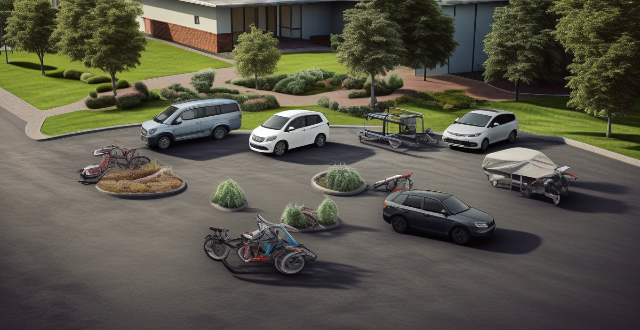
What is the impact of fuel vehicles on global oil demand ?
The widespread use of fuel vehicles, especially those poweredThe widespread use of fuel vehicles, especially those powered engines, has significantly influenced global This increased consumption of petroleum-based fuels has led to economic implications such as price fluctuations and dependence on imports, as well as environmental challenges like greenhouse gas emissions and air pollution. Alternatives to fuel vehicles, including electric and hybrid vehicles, public transportation, and active mobility options, offer potential solutions to reduce our reliance on oil and mitigate these negative impacts.

How does the maintenance cost of fuel vehicles compare to that of electric cars ?
The text discusses the comparison of maintenance costs between fuel vehicles and electric cars. It mentions that fuel vehicles typically require regular maintenance such as oil changes, air filter replacements, and spark plug checks. On the other hand, electric cars generally require less frequent maintenance than fuel vehicles. They do not have traditional engine oil, so oil changes are not necessary. However, they still require regular checks on the battery, brakes, and suspension system. Fuel vehicles often require more frequent maintenance due to their complex internal combustion engines and various fluids that need to be changed regularly. This includes oil changes every few thousand miles, as well as other routine services like brake pad replacements and tire rotations. Electric cars typically require less frequent maintenance because they have simpler drivetrains with fewer moving parts. Battery health is an important aspect of electric car maintenance, but it generally does not require as many check-ups as a traditional engine would. The cost of parts and labor for fuel vehicles can vary widely depending on the make and model of the vehicle, as well as the specific services required. However, fuel vehicles often have more expensive repairs due to their complexity and the number of moving parts involved. While electric cars may initially have higher upfront costs for batteries and specialized components, their maintenance costs tend to be lower in the long run because they require less frequent servicing and have fewer parts that need replacing.

How do hydrogen fuel cells work and are they a practical alternative energy source ?
Hydrogen fuel cells are devices that convert the chemical energy of hydrogen into electricity. They consist of an anode, cathode, electrolyte, and external circuit. The process involves splitting hydrogen into protons and electrons at the anode, moving protons through the electrolyte, moving electrons through the external circuit, combining protons and electrons with oxygen at the cathode to form water, and producing heat. Hydrogen fuel cells are renewable, have high energy density, zero emissions, and versatile applications. However, they face challenges such as high cost, limited infrastructure, and safety concerns.

How does the cost of installing and using electric vehicle charging stations compare to traditional fueling stations ?
The transition from traditional combustion engines to electric vehicles significantly impacts fueling infrastructure, with costs associated with installing and using electric vehicle charging stations differing from those of traditional fueling stations. Initial installation for EV charging might be higher due to electrical upgrades required, but operational costs are generally lower than for traditional fueling stations. User costs for EV charging can also be more predictable and potentially lower when taking advantage of off-peak electricity rates.

How do fuel vehicles contribute to air pollution ?
Fossil fuel vehicles release harmful gases and particulate matter, contributing to air pollution, climate change, and health issues. Measures to reduce their impact include improving fuel quality, enhancing vehicle efficiency, and promoting alternative transportation methods.
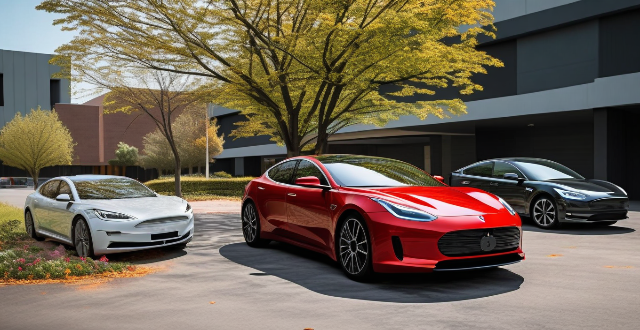
What are the advantages of fuel vehicles over electric cars ?
Fuel vehicles have several advantages over electric cars, including longer range, faster refueling time, more affordable upfront cost, more accessible charging infrastructure, and lower maintenance costs.
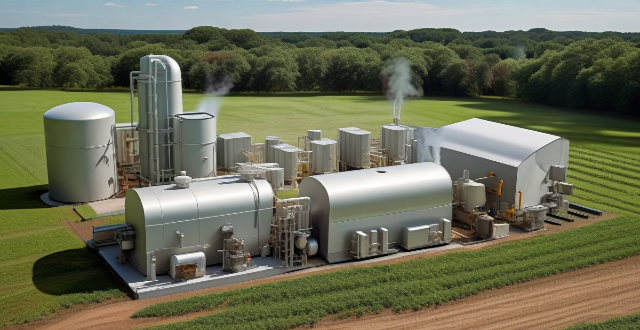
How do hydrogen fuel cells compare with conventional battery technologies ?
Hydrogen fuel cells and conventional battery technologies differ in efficiency, environmental impact, cost, and application. Hydrogen fuel cells have a higher energy density and quicker refueling time but currently rely on fossil fuels for hydrogen production, contributing to greenhouse gas emissions. Conventional batteries are more affordable and have lower upfront costs but require more frequent replacement. In terms of application, hydrogen fuel cells are suitable for transportation and remote power generation, while conventional batteries are widely used in portable devices and electric vehicles. Both technologies have their advantages and disadvantages, making them suitable for different applications.

What impact does energy-efficient transportation have on reducing fuel consumption ?
Energy-efficient transportation has a significant impact on reducing fuel consumption, which can lead to numerous benefits for the environment, economy, and society as a whole. These benefits include improved fuel efficiency, lower emissions, increased energy security, health benefits, and environmental conservation. By using vehicles and systems designed to minimize energy usage while maximizing performance, individuals and organizations can reduce their fuel consumption and save money on fuel costs over time. Additionally, reducing fuel consumption can lead to lower emissions of harmful pollutants and greenhouse gases, improving air quality and mitigating the effects of climate change. Investing in energy-efficient transportation can create new jobs and stimulate economic growth in industries related to clean energy and technology. Improving air quality through reduced emissions from energy-efficient transportation can have significant health benefits for people living in urban areas, reducing healthcare costs associated with treating respiratory problems and heart disease. Finally, reducing fuel consumption through energy-efficient transportation can help to conserve natural resources and protect ecosystems, preserving them for future generations.

How has the pandemic impacted the energy market ?
The COVID-19 pandemic has significantly impacted the energy market by decreasing demand, causing price fluctuations, and accelerating the shift towards renewable energy sources. With businesses and schools closed, people staying home more often, and reduced commuting and travel, there has been less need for energy consumption, leading to a reduction in electricity usage during peak hours. Industrial sources have seen lower energy consumption due to factory shutdowns or reduced production, while transportation sectors have experienced decreased demand for gasoline, diesel fuel, and jet fuel. Residential energy demand has also decreased as people adopted more energy-efficient habits. Energy prices have fluctuated, particularly in the oil and gas industry, with crude oil prices falling sharply at the beginning of the pandemic but recovering somewhat since then. Natural gas prices have also experienced volatility due to declines in demand. However, as economies begin to recover and restrictions ease, energy prices may increase again. The pandemic has accelerated the transition towards renewable energy sources as governments and businesses seek to reduce their carbon footprint and mitigate climate change. Governments have implemented policies aimed at promoting renewable energy development, such as tax incentives for solar and wind projects or bans on new fossil fuel infrastructure. Companies across various industries have set ambitious sustainability goals, including reducing their greenhouse gas emissions and increasing their use of renewable energy sources. This trend is expected to drive further growth in the renewable energy sector even after the pandemic subsides.